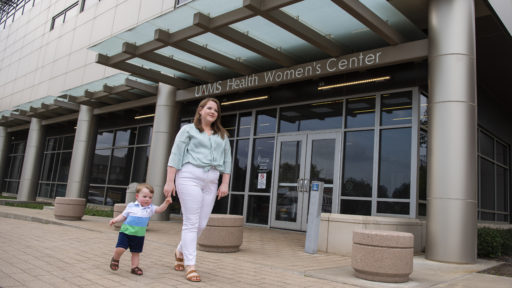Prolapse can be uterine prolapse or prolapse of the vagina being pushed by bladder (cystocele), rectum (rectocele) or small bowel (enterocele). Without medical treatment or surgery, these structures may eventually prolapse further into the vagina or even through the vaginal opening if the supports weaken enough. At UAMS, our experts can help you successfully treat your condition before it worsens.
The most common symptom of prolapse is feeling pressure from pelvic organs pressing against the vaginal wall. You may also experience feeling very full in your lower belly, incontinence, or a pull or stretch in your groin area.
Prolapse can occur in women of all ages but becomes more common as women age. This condition is also more common for women who have delivered large babies or had extremely long pushing phases of labor. You may also develop pelvic organ prolapse is you have had a hysterectomy.
Your condition may be worsened anything that puts pressure on the belly such as:
- Obesity
- Long-lasting cough
- Frequent constipation
- Pelvic organ tumors
At UAMS, our team will determine the best treatment option for your individual situation. If your condition is mild, you may be able to do things at home to help and develop new, healthy habits. For others, surgery may be your best alternative.




